Have you ever experienced a profound sense of sadness and loss before the actual event even occurs? Perhaps you’ve felt a heavy heart and a deep longing for someone or something that is yet to be lost. This emotional rollercoaster is known as anticipatory grief. So exactly what is anticipatory grief?
It is a complex and often misunderstood phenomenon. Let us explore what is anticipatory grief, provide relatable examples of anticipatory grief, and delve into the signs and symptoms of anticipatory grief, explore the stages of anticipatory grief and learn strategies for dealing with anticipatory grief.
What is Anticipatory Grief?
Anticipatory grief refers to the mourning process that occurs before the actual loss of a loved one, a relationship, or a significant life change. It is a natural response to the awareness that loss is imminent, giving individuals an opportunity to emotionally prepare themselves for the impending change.
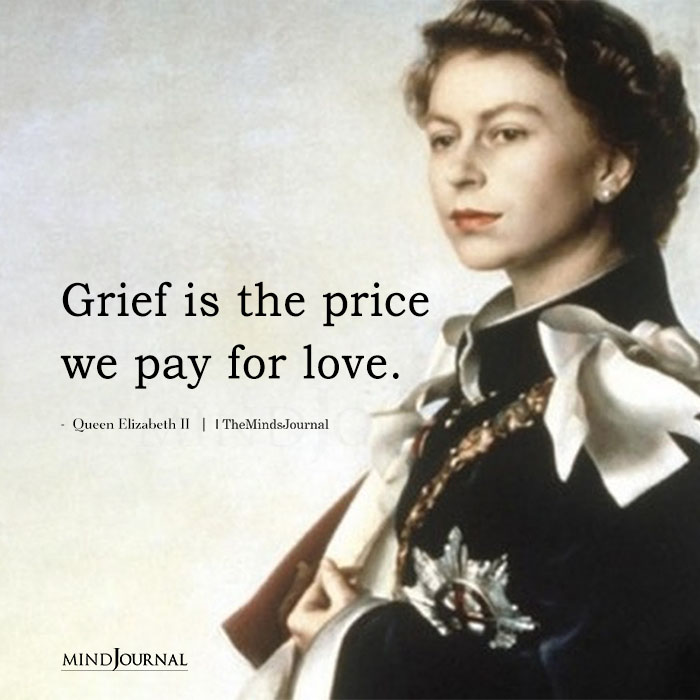
Anticipatory grief can occur in various situations, such as when a loved one is diagnosed with a terminal illness, during the progression of a degenerative disease, or even before the end of a cherished chapter in one’s life.
Related: 10 Lessons We Can Learn From Grief
Examples of Anticipatory Grief
To better understand anticipatory grief, let’s consider a few relatable examples. Imagine a family coming to terms with a loved one’s diagnosis of Alzheimer’s disease. While the person affected may still be physically present, family members may grieve the loss of their loved one’s memories, cognitive abilities, and the future they had envisioned together.
Similarly, a couple going through a divorce may experience anticipatory grief as they mourn the loss of their shared dreams and the end of their life as a couple. These are some highly relatable examples of anticipatory grief.
Signs and Symptoms of Anticipatory Grief
To better understand what is anticipatory grief, we need to identify its symptoms. Recognizing the signs and symptoms of anticipatory grief is essential for individuals and their loved ones to navigate this emotional journey effectively.
Some common indicators include:
1. Emotional Distress
Feelings of sadness, anxiety, anger, guilt, or a sense of helplessness are common emotions experienced during anticipatory grief. These emotions may fluctuate and intensify over time.
2. Preoccupation with Loss
Individuals may find themselves constantly thinking about the impending loss, replaying memories, or imagining life without the person or situation they anticipate losing.
3. Changes in Behavior and Relationships
Anticipatory grief can manifest in changes in appetite, sleep disturbances, withdrawal from social interactions, and strained relationships with others due to emotional overload.
4. Physical Symptoms
Grief can also manifest in physical symptoms, such as headaches, fatigue, digestive issues, and weakened immune responses. These are some of the most common signs and symptoms of anticipatory grief.
5. Ambiguous Loss
Anticipatory grief often involves a sense of ambiguous loss, where the person or situation is physically present but functionally or emotionally absent. This can lead to a sense of longing and confusion.
Related: The Widowhood Effect: Can Grief Increase Mortality In A Surviving Partner?
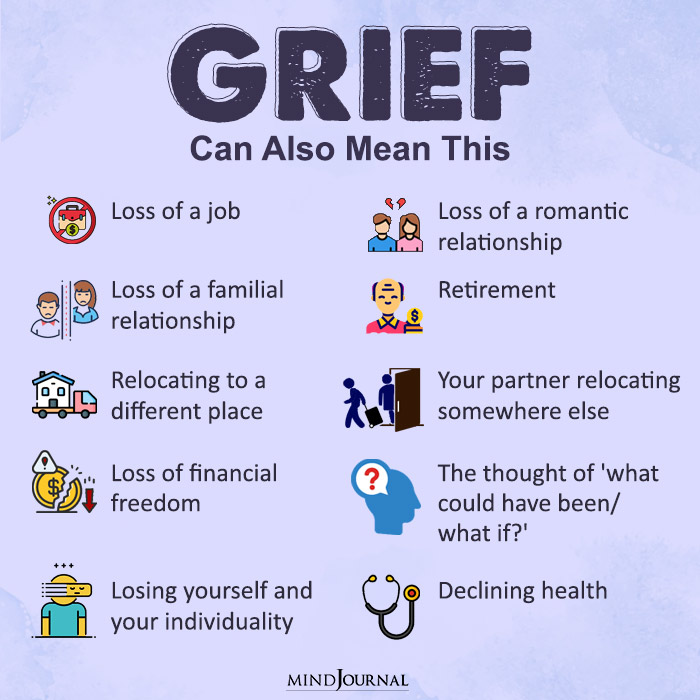
Stages of Anticipatory Grief
So what is anticipatory grief? Anticipatory grief, much like traditional grief, can be experienced in stages. While not everyone may go through all stages or experience them in a linear fashion, understanding these stages can provide insight into the emotional journey of anticipatory grief.
Let’s explore the stages of anticipatory grief:
1. Denial and Shock
In the initial stage of anticipatory grief, individuals may experience a sense of disbelief and shock in response to the impending loss. It can be challenging to accept the reality of the situation, leading to a coping mechanism of denial.
This stage serves as a protective shield, allowing individuals to gradually process the overwhelming emotions.
2. Emotional Upheaval
As the reality of the impending loss sinks in, individuals may enter a stage of emotional upheaval. Intense and fluctuating emotions such as sadness, anger, fear, and anxiety can become prominent during this stage.
The emotional rollercoaster may feel overwhelming and unpredictable, making it crucial to find healthy ways to express and process these emotions.
3. Preoccupation and Rumination
During this stage, individuals may find themselves consumed by thoughts and concerns related to the impending loss. They may continually think about the future, replay memories, or engage in what-if scenarios.
This preoccupation and rumination can be a way for individuals to mentally prepare for the upcoming change and say their goodbyes in advance.
4. Making Meaning and Finding Purpose
In this stage, individuals may search for meaning and purpose amidst the impending loss. They may reflect on the impact the person or situation had on their lives and seek ways to honor and remember them.
This stage can involve engaging in activities that provide a sense of closure, creating legacies, or finding solace in spirituality or personal beliefs. This is one of the most important stages of anticipatory grief.
5. Reorganization and Adjustment
As the loss draws nearer, individuals may enter a stage of reorganization and adjustment. They begin to adapt to the impending change, redefining roles, routines, and relationships in preparation for life without the person or situation they anticipate losing.
This stage involves finding new ways to navigate life and establish a new normal.
6. Anticipatory Mourning and Acceptance
The final stage of anticipatory grief involves a gradual acceptance of the impending loss. While there may still be moments of sadness and longing, individuals begin to make peace with the situation and acknowledge the inevitability of the loss.
This stage allows for a more proactive approach to grieving, providing an opportunity to express love, gratitude, and closure before the actual loss occurs.
It is important to note that everyone’s experience of anticipatory grief is unique, and individuals may move through these stages at different paces or revisit certain stages.
Additionally, not all individuals may experience each stage. The stages serve as a framework to help understand the emotional journey of anticipatory grief, but it is essential to allow for individual differences and personal coping mechanisms throughout the process.
Related: The Five Stages Of Grief: Exploring The Kübler-Ross Model
Case Study: Sarah’s Anticipatory Grief Journey
Apart from the examples of anticipatory grief above, let’s us consider this case study below to improve our understanding of what is anticipatory grief.
Sarah is a 45-year-old woman whose husband, Michael, has been diagnosed with a rare and aggressive form of cancer. The prognosis is poor, and the doctors have informed them that Michael’s time is limited. Sarah finds herself on an emotional rollercoaster as she navigates the complex landscape of anticipatory grief.
1. Denial and Shock
Upon receiving the devastating diagnosis, Sarah initially goes into a state of shock. She struggles to accept the reality of Michael’s illness, finding it hard to believe that her loving and vibrant partner is facing such a grave condition.
Sarah finds herself hoping for a miracle, clinging to the possibility that the doctors may have made a mistake.
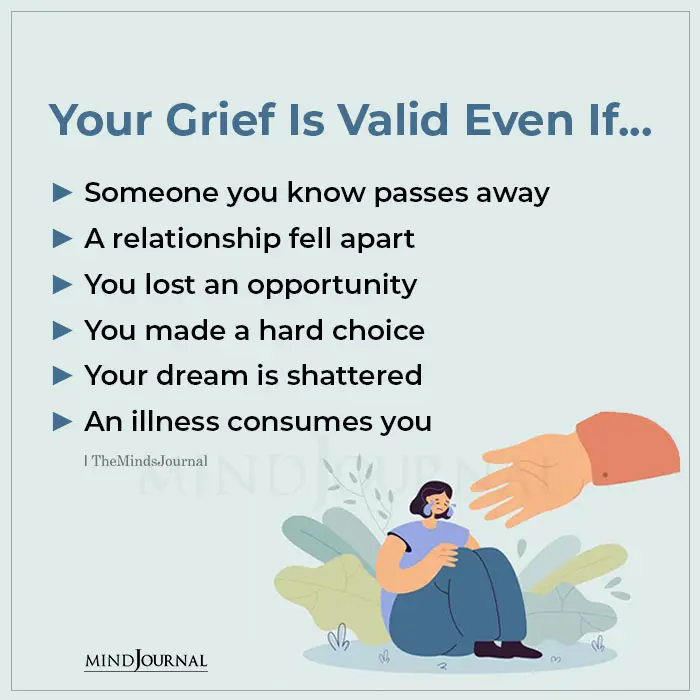
2. Emotional Upheaval
As the shock wears off, Sarah is overwhelmed by a flood of emotions. She experiences deep sadness and waves of grief as she contemplates the impending loss of her husband.
Anger and frustration arise as she searches for answers and wonders why this is happening to them. Fear and anxiety grip her, as she worries about how she will manage without Michael and what the future holds for her and their children.
3. Preoccupation and Rumination
Sarah’s mind becomes consumed by thoughts of Michael’s illness. She finds herself constantly researching potential treatments and alternative therapies, desperately seeking a way to prolong his life.
She spends hours reflecting on their life together, replaying memories and imagining a future without him. Sarah becomes preoccupied with the impending loss, trying to mentally prepare herself for a life without her beloved husband.
4. Making Meaning and Finding Purpose
As Sarah processes her grief, she begins to search for meaning and purpose amidst the impending loss. She cherishes the moments spent with Michael, making an effort to create lasting memories and engage in activities they both enjoy.
Sarah also starts exploring ways to honor Michael’s legacy, considering fundraising efforts for cancer research or participating in support groups to help others facing similar challenges.
5. Reorganization and Adjustment
As Michael’s health deteriorates, Sarah enters a stage of reorganization and adjustment. She starts taking on additional responsibilities, ensuring that their home runs smoothly and their children’s needs are met.
Sarah also seeks support from friends and family, delegating tasks and accepting help when needed. She begins to establish a new routine and redefine her roles, preparing for the eventual loss and the changes it will bring to her life.
6. Anticipatory Mourning and Acceptance
In the final stage, Sarah gradually accepts the inevitable loss of Michael. While she still experiences deep sadness and moments of intense grief, she realizes the importance of cherishing the time they have left together.
Sarah spends quality time with Michael, expressing her love, gratitude, and farewells. She seeks solace in the knowledge that she has done everything she can to support him throughout his illness.
Throughout her journey of anticipatory grief, Sarah seeks support from a grief counselor who provides a safe space for her to process her emotions and fears. The counselor helps Sarah explore coping strategies, such as mindfulness techniques, journaling, and connecting with support groups. Sarah finds comfort in sharing her experiences with others who have faced similar losses, finding solace in their understanding and empathy.
Despite the immense pain and sadness, Sarah gradually finds resilience and strength within herself. She learns to embrace the present moment, focusing on the love and connection she shares with Michael.
Sarah discovers that anticipatory grief, while incredibly difficult, can also be an opportunity for growth, healing, and profound expressions of love and compassion.
Related: The Transformational Effects of Bereavement: How Grief Can Lead To Spiritual Growth
Dealing with Anticipatory Grief
Knowing what is anticipatory grief is not enough, we must also know how to cope with it. While anticipatory grief can be an emotionally challenging experience, there are coping strategies that can help individuals navigate this journey:
1. Acknowledge and Validate Your Emotions
Recognize that it is normal to experience a wide range of emotions during anticipatory grief. Allow yourself to feel and express these emotions without judgment.
Whether it’s sadness, anger, fear, or guilt, acknowledging and validating your emotions is an essential step in the healing process.
2. Seek Support
Reach out to trusted friends, family members, or support groups who can provide a safe space to express your emotions and offer understanding. This is an excellent technique for dealing with anticipatory grief.
3. Communicate Openly
Engage in open and honest conversations with the person or people involved in the impending loss. Express your thoughts, fears, and hopes, fostering a deeper understanding and connection.
4. Educate Yourself
Learning about the illness, condition, or situation that is leading to the anticipated loss can help you better understand what to expect and how to cope. Educate yourself about the progression of the disease, available resources, and support options.
Knowledge can empower you to make informed decisions and provide a sense of control in an otherwise challenging situation.
5. Practice Self-Care
Prioritize self-care activities that promote emotional well-being, such as engaging in hobbies, relaxation techniques, practicing mindfulness or meditation, and maintaining a healthy lifestyle.
6. Professional Help
Consider seeking professional support from therapists or counselors who specialize in grief counseling. They can provide guidance and help develop coping strategies tailored to your unique situation. This is perhaps the most effective way for dealing with anticipatory grief.
7. Create Meaningful Experiences
Make the most of the time you have left by creating meaningful memories and experiences with your loved one. This can help alleviate regrets and provide a sense of closure.
8. Practice Self-Compassion
Be kind and gentle with yourself throughout the process. Recognize that anticipatory grief is a complex and individual journey. Allow yourself to grieve, mourn, and process the impending loss in your own way and at your own pace.
Practice self-compassion by giving yourself permission to rest, heal, and seek support when needed.
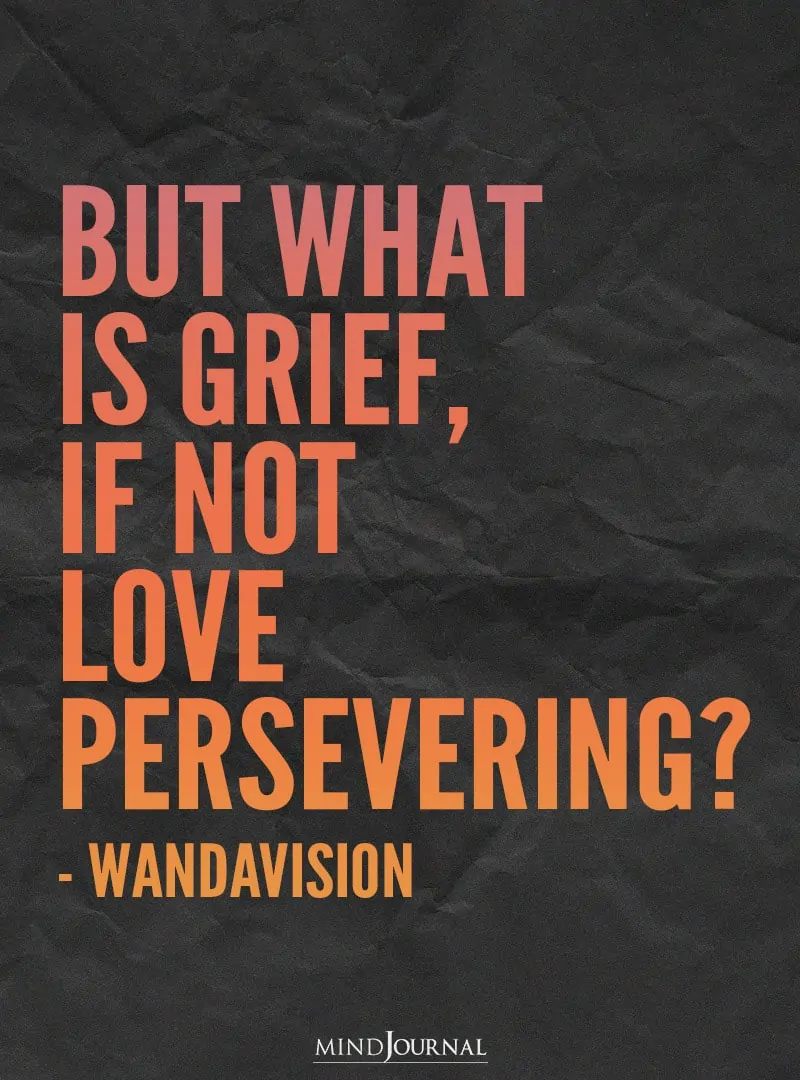
Remember that there is no right or wrong way to cope. Find what works best for you and be patient with yourself throughout the process.
Related: How To Overcome The Fear Of Losing Someone You Love: 10 Tips
Takeaway
So what is anticipatory grief? Anticipatory grief is a natural response to an impending loss and can be a deeply emotional and challenging experience. By understanding what anticipatory grief is, recognizing its signs and symptoms, and utilizing coping strategies, individuals can navigate this difficult journey with more resilience and support.
Remember, it is okay to grieve before the actual loss occurs, and seeking help from loved ones and professionals can provide the necessary support during this time. Embrace the opportunity to cherish the present and find solace in the memories that will forever hold a special place in your heart.
Frequently Asked Questions (FAQs):
What does anticipatory grief look like?
Anticipatory grief manifests as sadness, anxiety, and emotional preparation when anticipating the impending loss of a person or experience.
What causes anticipatory grief?
Anticipatory grief is triggered by the awareness of an upcoming loss, allowing emotional preparation and processing before the actual event occurs.
How do you calm anticipatory grief?
Calm anticipatory grief through self-care, seeking support, expressing emotions, and focusing on positive memories and meaningful moments with loved ones.

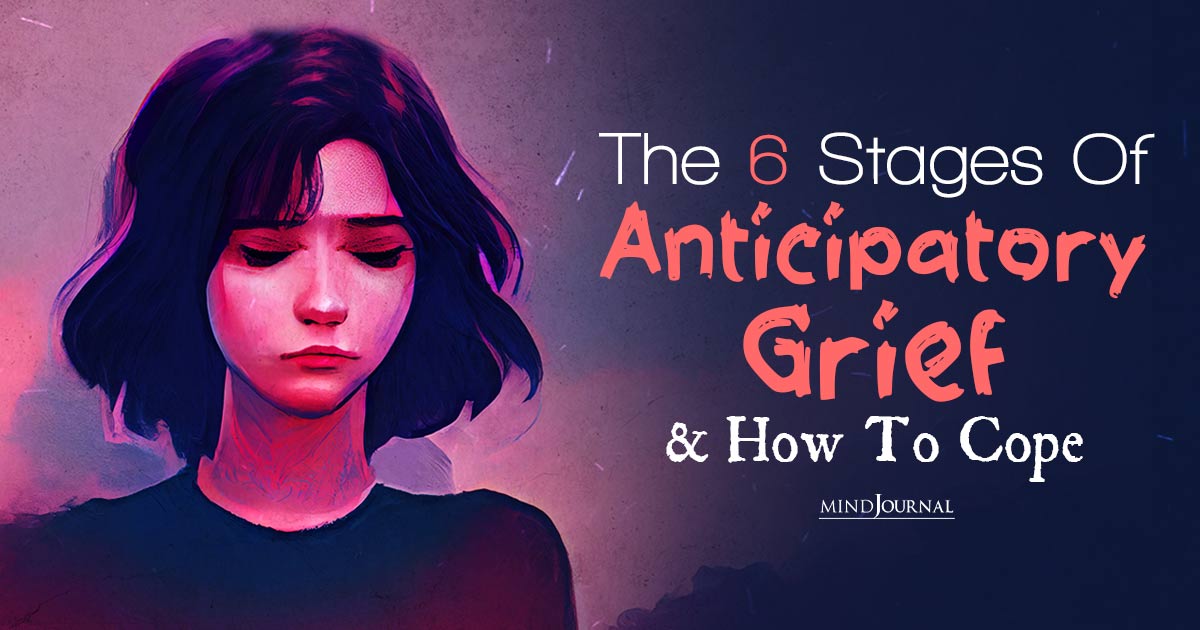







Leave a Reply
You must be logged in to post a comment.